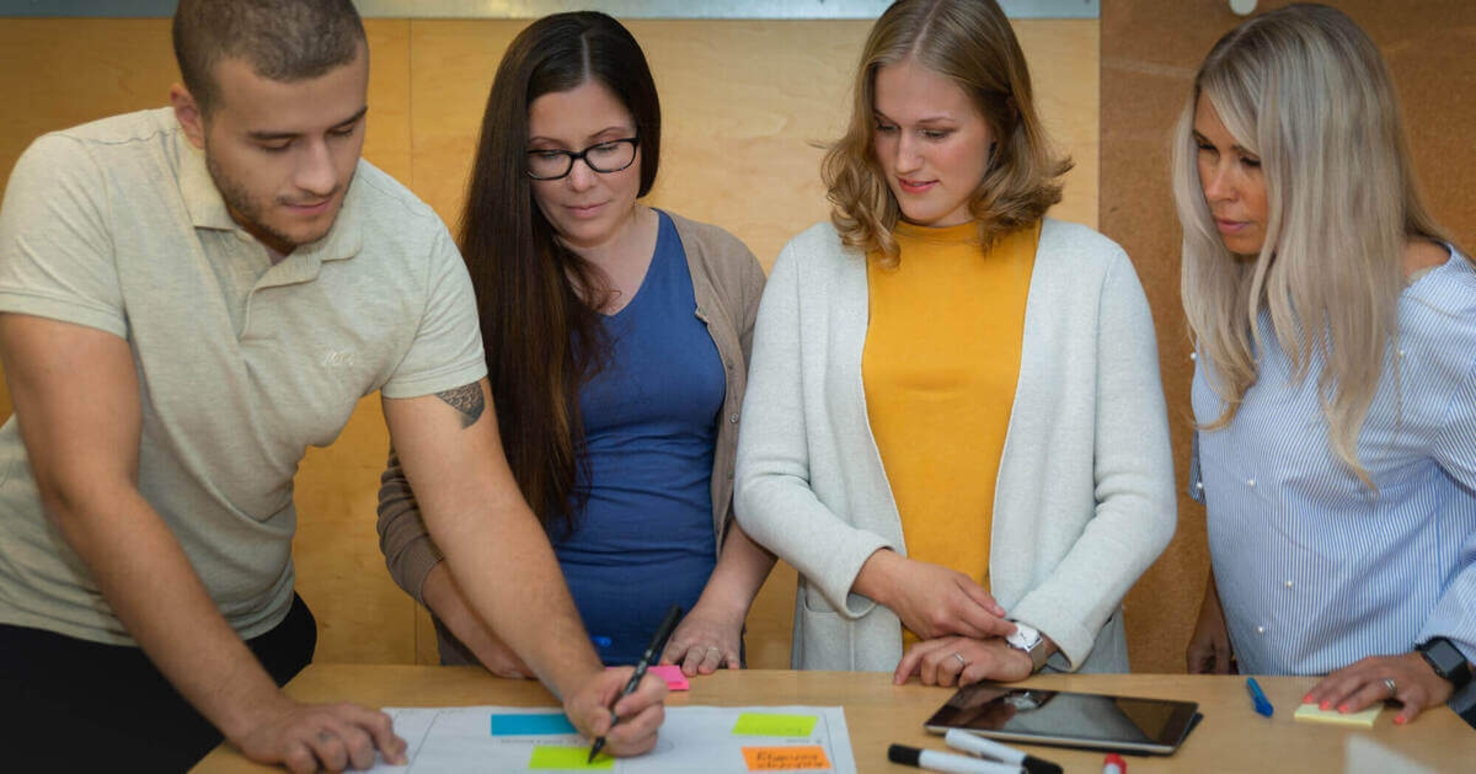Students come up with new motivating e-learning solutions for Unilever
During the Service Design course, students in the Business Administration degree developed learning service concepts based on an assignment by Unilever.

One of Laurea's key partners is the global daily goods manufacturer Unilever. Unilever and Laurea cooperate extensively and closely e.g. in the form of student projects. An example of this is the service design project that occurred in the autumn whose aim was to develop new and innovative learning service concepts with students.
Mobile shopping behaviour, augmented reality, virtual assistants and the wider utilisation of artificial intelligence are also strongly changing shopping behaviour in stores. In the future, customers will appreciate a more targeted and hyperpersonal customer experience. The goal of Unilever Nordic is to develop the brands' new customer experiences and, at the same time, their business.
What kind of expertise will be needed in the future to produce brand experiences that meet customer expectations? During the Service Design course, the students were challenged to consider how new learning can be achieved through digitalising service experiences. Students were tasked to reflect on what kind of motivating and rewarding learning paths and technologies Unilever could offer for its future talent.
Concepts designed by students will be used in the future
Students presented their final service concepts to experts responsible for developing Unilever's competence. Sales speeches about service concepts were evaluated from the perspective of the content of each group's proposal, visualisation of the presentation, storytelling and fluency of the presentation. The content evaluation emphasised the research-based justification of the solution and how well the solution benefits Unilever's personnel, how easy it is to implement it and the novelty value of the idea.
- Although the assignment and the project schedule were quite challenging, the sales pitches by the students were very interesting and useful. We will definitely introduce some of the concepts designed by the students in the future as we develop learning paths for our future experts, say Kati Hannula and Emma Lindroos from Unilever.
Practical experience with service design tools
The students created competence development concepts in teams consisting of students from different degree programmes using the service design process and tools. The teams included students from both Finnish and English language degree programmes.
During the course, one student team of six developed a gamified learning platform for Unilever that allowed team members to compete with each other in a playful manner. The purpose of the platform is to enable flexible learning where and when is best suited for the learner.
Jaakko Hautanen, who was a member of that team and student of safety and risk management, says that their concept is motivating, especially because the learner feels excited to learn more on the platform.
- The best aspects of the concept are the ease and smoothness of learning since learning happens on the learners' own terms which helps make learning a habit, Jaakko says.
Elina Henttonen, another member of the team and a first-year student in Business Information Technology, says that the course has given a good idea of what service design really is. It has also taught team and project work skills.
- We were given very good service design tools. In fact, our team utilised the online cooperation tools a lot, especially when we were coming up with ideas and building a prototype together, Jaakko continues.
Multidisciplinary team provided versatile expertise
Another student team created a virtual escape room for Unilever that allowed the staff to experiment and practise their communication and cooperation skills in different escape room scenarios. The escape room also enables learning from other team members. The student team that developed the escape room idea included six students from business, Business Information Technology, and safety and risk management degree programmes.
- We had a really good team, the collaboration worked well and the project also succeeded as expected. In particular, we benefitted from the fact that we have a fairly diverse group, and we had wide representation from different sectors in Business Administration, says Annemari Toikkanen, the team's project manager and a Business Information Technology student.
- In our group, everyone had a different background, offered different skills and were prepared to give their free time. In addition to basic skills, I learned a lot about group work during the course, says Anu Salminen, a Business Management student.
During the course, the student team gained experience in the implementation of a service design project from start to finish and especially in the use of service design tools.
- We produced a concept for Unilever, which they might actually start to introduce at some point, so of course that feels great, Annemari concludes.